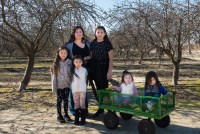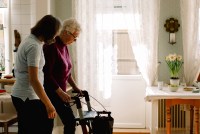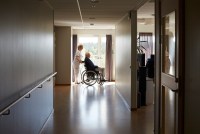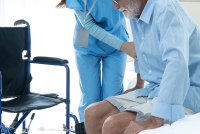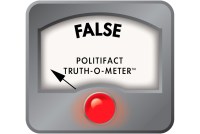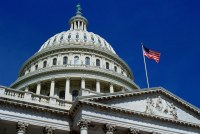Latest KFF Health News Stories
Shaved Costs, High Risk, Maximum Profits: Regulators Worry About Florida’s Butt Lift Boom
Social media marketing lures people to South Florida’s lucrative cosmetic surgery scene with the promise of cheap Brazilian butt lifts. But some researchers, patient advocates, and surgeon groups say that the risks of the procedure are generally not understood by prospective patients, and that an unsafe number of surgeries can be performed per day in office settings, maximizing profits.
El forense del condado de Miami-Dade ha documentado casi tres docenas de muertes de pacientes de cirugía estética desde 2009, de los cuales 26 fueron consecuencia de un levantamiento de glúteos brasileño.
Decisión de Eli Lilly de bajar el precio de su insulina logrará cambios históricos en los costos
Expertos en precios de medicamentos celebraron la noticia de Eli Lilly y otros esfuerzos. Y estas otras iniciativas para llevar al mercado insulina de menor costo, a su vez, presionarían a Eli Lilly para que mantuviera sus precios bajos.
What the Health? From KFF Health News: March Medicaid Madness
President Joe Biden and Republicans in Congress spent last month sparring over whether to shield Medicare and Social Security from budget cuts — leading some to wonder if Medicaid was on the table instead. Biden and Democrats say no, but some Republicans seem eager to trim federal spending on the health program for Americans with low incomes. And ready or not, artificial intelligence is coming to medical care. Benefits, as well as unintended consequences, are likely. Alice Miranda Ollstein of Politico, Rachel Cohrs of STAT News, and Lauren Weber of The Washington Post join KHN’s chief Washington correspondent, Julie Rovner, to discuss these issues and more.
Eli Lilly Slashed Insulin Prices. This Starts a Race to the Bottom.
Eli Lilly’s news that it plans to cut insulin costs for patients will help, not hinder, the recent efforts in California and by entrepreneurs such as Mark Cuban to offer lower-cost alternatives, drug pricing experts said.
California’s Massive Medicaid Program Works for Some, but Fails Many Others
Medi-Cal serves more than one-third of the state’s population — offering a dizzying range of care to a diverse population. In the new “Faces of Medi-Cal” series, California Healthline will assess the program’s strengths and weaknesses through the lives and experiences of its enrollees.
This Dental Device Was Sold to Fix Patients’ Jaws. Lawsuits Claim It Wrecked Their Teeth.
A dental device called AGGA has been used on about 10,000 patients without FDA approval or proof that it works. In lawsuits, patients report irreparable harm. The AGGA’s inventor and manufacturer have denied all liability in court.
Trabajadores comunitarios persuaden a inmigrantes mayores de tener cobertura de salud
Hasta octubre, el mes más reciente para el que hay disponibles datos, más de 300,000 adultos mayores inmigrantes que no tienen residencia legal se habían inscrito en el Medi-Cal completo, un 30% más que la proyección original del estado.
Community Workers Fan Out to Persuade Immigrant Seniors to Get Covered
California has enrolled into Medi-Cal more than 300,000 older immigrant adults lacking legal residency since May, but the state doesn’t know how many more might be eligible. Community workers are now searching for them.
Dementia Care Programs Help, If Caregivers Can Find Them
Programs assisting people with dementia — and their caregivers — improve quality of life and care. But millions of unpaid family and friend caregivers may not know where or how to find help.
Readers and Tweeters Urgently Plea for a Proper ‘Role’ Call in the ER
KHN gives readers a chance to comment on a recent batch of stories.
California Dangles Bonuses for Nursing Homes That Add Staff
Rather than simply reward top-performing facilities, the state’s Medicaid program will hand bonuses to nursing homes — even low-rated ones — for hiring more workers and reducing staff turnover.
Montana Seeks to Insulate Nursing Homes From Future Financial Crises
Lawmakers are considering creating standards to set Medicaid reimbursement rates. But industry observers wonder whether the move would be too little, too late to bolster a beleaguered industry.
One Texas Judge Will Decide Fate of Abortion Pill Used by Millions of American Women
“What happens in Texas doesn’t stay in Texas,” warns an abortion rights advocate bracing for a district judge’s ruling on whether the abortion pill mifepristone was properly authorized by the FDA. His decision could force the medication off the U.S. market.
A Bitter Battle Over the ‘Orphan Drug’ Program Leaves Patients’ Pocketbooks at Risk
Patients who depend upon special drugs to treat rare diseases are caught in the crossfire as drugmakers and the FDA battle over regulations that reward companies for developing treatments for relatively small pools of patients.
Proposed Medicare Advantage Changes Cannot Accurately Be Called ‘Cuts,’ Experts Say
CMS advanced two proposed changes that could affect Medicare Advantage plans. One would allow the government to recover past overpayments. As a result, it could reduce those insurers’ profits, leading them to increase enrollees’ out-of-pocket costs or reduce benefits. But it’s inaccurate to characterize the changes as “cuts.”
Senators Say Health Worker Shortages Ripe for Bipartisan Compromise
The Senate’s top health committee focused on the worsening health care workforce shortage during its first hearing Thursday, with Sen. Bernie Sanders, its new chair, boldly promising bipartisan solutions.
Mark Cuban Has Been Taking On the Drug Industry. But Which One?
The billionaire entrepreneur and NBA team owner is making waves with his new drug company. But his generics aren’t always the lowest-priced deal.
After Staying Away During Pandemic, Doctors Return to Lobby Congress
Hundreds of physicians came to Washington this week to lobby Congress about their “recovery plan” for physicians, which includes a Medicare pay boost and an end to some frustrating insurance company requirements.
One State Looks to Get Kids in Crisis out of the ER — And Back Home
At many U.S. hospitals, children and teens are stuck in the emergency department for days or weeks because psychiatric beds are full. Massachusetts is trying a simple, promising solution.






